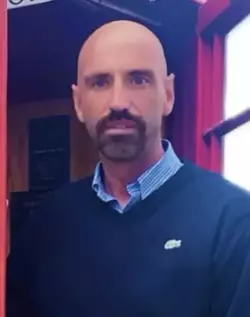L | A
By Collin Washburn

Pride flags at the Pride Parade, on Sunday, June 8, 2025
As someone who’s been to 17 of Utah’s Pride Festivals, I’ve noticed that attendance — and community support — has declined noticeably. It’s not hard to see why.
Once a vibrant celebration of resistance and community, the festival now feels more like a corporate fair than a movement. Booths hand out branded stickers instead of ideas, and the parade — with no grand marshal, seems to run in circles — literally and figuratively.
What happened?
The Pride Center, which organizes the event, appears to be operating without vision. The focus seems to have shifted from community empowerment to financial survival. The festival’s primary function now seems to be funding the Pride Center itself, rather than championing the LGBTQ+ community. It’s a feedback loop of mediocrity: more booths, fewer moments of meaning.
It’s a familiar pattern. Just as Burning Man was diluted by commercialism and mismanagement, Pride has become performative and routine. It’s no longer about defiance or identity — it’s about staying solvent.
As LGBTQ+ people have gained broader social acceptance, the energy that once fueled Pride has waned. In many ways, we achieved what we were fighting for: equality. But perhaps that goal lacked imagination. Being equal to the straight majority was never going to be enough to satisfy a community defined by its difference, creativity and resilience, and frankly, the goal lacked ambition.
Now, many of the younger attendees were born after Stonewall — some don’t even know what it was. And that’s not their fault; it’s ours. We’ve failed to pass on the stories, the struggle, the sense of purpose. Instead of cultivating new visionaries, we’ve handed them rainbow wristbands and told them to celebrate.
It’s time to admit that the current stewards of pride have lost the plot. If this movement is going to matter again, it can’t just be another city-sponsored party with food trucks and a merch tent. It needs to challenge, to educate, and yes — to provoke.
Maybe it’s time we looked back to those who paved the way. Not out of nostalgia, but for guidance. Because if we don’t restore purpose to the Pride Festival, we risk losing the very thing that made it powerful in the first place.

Collin Washburn is a long-time Salt Lake City resident and has regularly attended the Utah Pride festival for nearly 20 years.
By Collin Washburn

Pride flags at the Pride Parade, on Sunday, June 8, 2025
As someone who’s been to 17 of Utah’s Pride Festivals, I’ve noticed that attendance — and community support — has declined noticeably. It’s not hard to see why.
Once a vibrant celebration of resistance and community, the festival now feels more like a corporate fair than a movement. Booths hand out branded stickers instead of ideas, and the parade — with no grand marshal, seems to run in circles — literally and figuratively.
What happened?
The Pride Center, which organizes the event, appears to be operating without vision. The focus seems to have shifted from community empowerment to financial survival. The festival’s primary function now seems to be funding the Pride Center itself, rather than championing the LGBTQ+ community. It’s a feedback loop of mediocrity: more booths, fewer moments of meaning.
It’s a familiar pattern. Just as Burning Man was diluted by commercialism and mismanagement, Pride has become performative and routine. It’s no longer about defiance or identity — it’s about staying solvent.
As LGBTQ+ people have gained broader social acceptance, the energy that once fueled Pride has waned. In many ways, we achieved what we were fighting for: equality. But perhaps that goal lacked imagination. Being equal to the straight majority was never going to be enough to satisfy a community defined by its difference, creativity and resilience, and frankly, the goal lacked ambition.
Now, many of the younger attendees were born after Stonewall — some don’t even know what it was. And that’s not their fault; it’s ours. We’ve failed to pass on the stories, the struggle, the sense of purpose. Instead of cultivating new visionaries, we’ve handed them rainbow wristbands and told them to celebrate.
It’s time to admit that the current stewards of pride have lost the plot. If this movement is going to matter again, it can’t just be another city-sponsored party with food trucks and a merch tent. It needs to challenge, to educate, and yes — to provoke.
Maybe it’s time we looked back to those who paved the way. Not out of nostalgia, but for guidance. Because if we don’t restore purpose to the Pride Festival, we risk losing the very thing that made it powerful in the first place.

Collin Washburn is a long-time Salt Lake City resident and has regularly attended the Utah Pride festival for nearly 20 years.